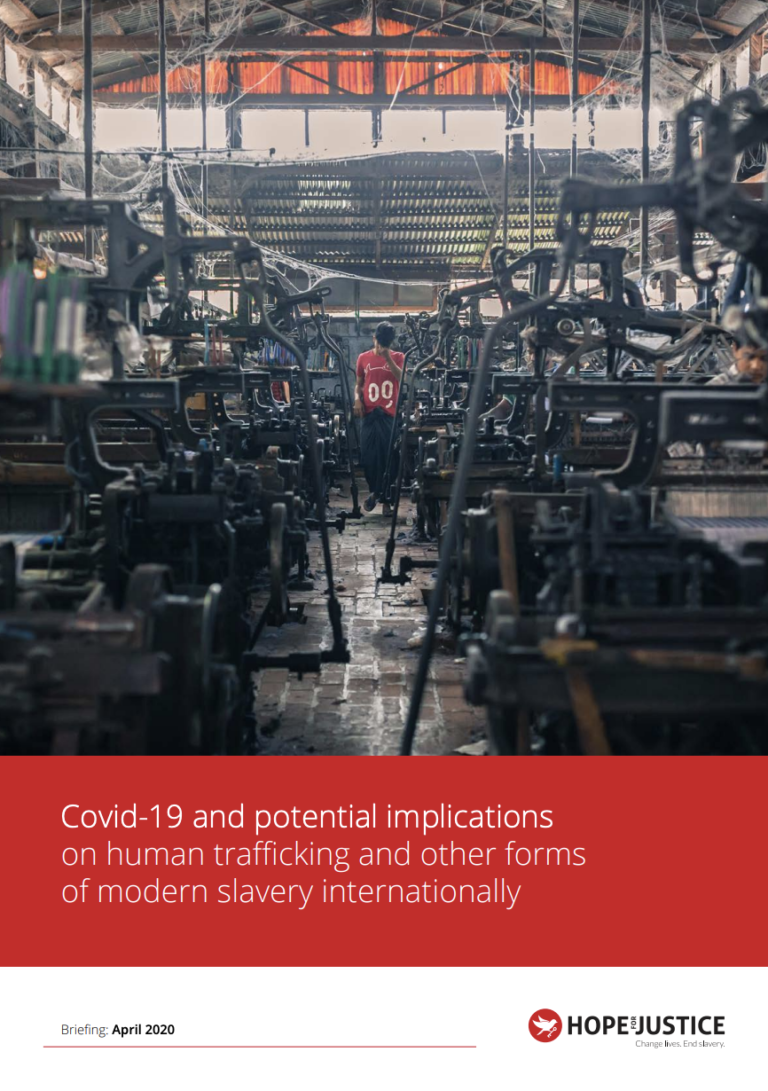Beyond Compliance: The Modern Slavery Act Research Project
PublicationsDocumenting the impact of new legislative acts is an indispensable tool for improving the effectiveness of this legislation and advancing business practice.
COVID-19 is a global pandemic affecting every country in the world. Similarly, modern slavery is a global threat that affects every country in the world. This briefing aims to highlight some of the global concerns and increased potential threats around modern slavery posed by COVID-19 and identify recommendations.
This briefing covers the following themes:

Documenting the impact of new legislative acts is an indispensable tool for improving the effectiveness of this legislation and advancing business practice.
Modern slavery is everywhere, but cleaning it up is possible. Due diligence and transparency is the key to ending modern slavery in supply chains. The report gives an insight into the growing body of law and practice from international standards t...Read More
Labor migration is currently the most common predicate action leading to human trafficking and forced labor, and debt bondage is the most common indicator of forced labor. Based on Migrasia’s first hand experience with directly assisting thousands...Read More
The data in this report represents signals and cases from January 1, 2018 through December 31, 2018 and is accurate as of July 25, 2019. Cases of trafficking may be ongoing or new information may revealed to the National Hotline over time. Consequen...Read More